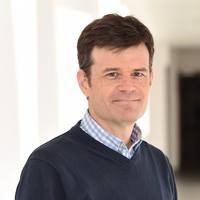Adams Group
Somatic Functional Genomics and Cancer
- The Altas of Variant Effects Alliance – As part of these studies we are developing high-throughput methods to systematically and comprehensively identify all pathogenic alleles of cancer-associated genes. We are using techniques such as saturation genome editing at scale.
- The Genomic Atlas of Dermatopathology – While the majority of cancer deaths are associated with melanoma, a malignancy of melanocytes, there are more than 300 other skin cancer types most of which have never undergone next-generation sequencing and thus we are unaware of the driver genes in these tumours or the exposures that might promote their development. The genomic atlas of dermatopathology brings together a group of world-leading pathologists to tackle this problem.
- Combinatorial CRISPR Screening – We have a long interest in understanding cancer pathways. As part of these studies we have developed CRISPR libraries that target pairs of genes at the same time so as to identify synthetic lethal interactions and also gene redundancy. We are using these libraries to systematically screen cancer cell lines with a particular focus on metastatic melanoma, lung and pancreas as these are cancers of unmet clinical need. We are also performing a “deep dive” into the biology of several candidates to understand the basic mechanisms by which synthetic lethal gene pairs function.
We have a broad interest in many aspects of cancer biology. Cancer occurs when there is an accumulation of genetic damage that confers a selective advantage on a cell, allowing it to evade normal growth control processes. Uncontrolled growth of these damaged cells ultimately results in tumour formation. While some of the key events at the molecular level that are involved in cancer formation are known, there is still much work to be done to identify those genetic changes that are important for cancer and that represent new diagnostic markers or therapeutic targets.
Core team
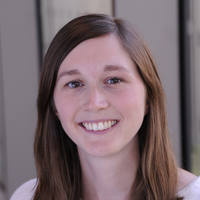
Elizabeth Anderson
Scientific Manager
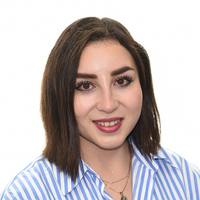
Fernanda G. Arriaga González
Research Assistant
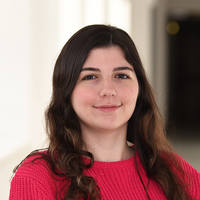
Jacqueline Marcia Boccacino
PhD Student
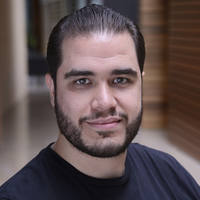
Martin Del Castillo Velasco Herrera
Senior Bioinformatician

Ingrid Ferreira
Visiting Scientist
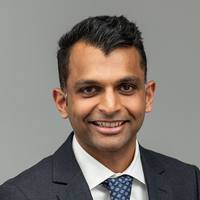
Dr Ashray Gunjur
Postdoctoral clinical research fellow
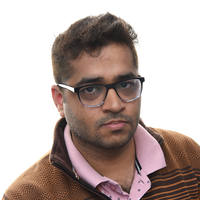
Dr Prashant Gupta
Postdoctoral Fellow
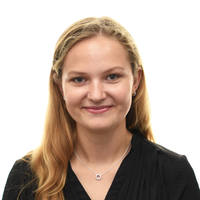
Dr Olivia Holdsworth
Bioinformatician

Nithila Joseph
Postdoctoral Fellow
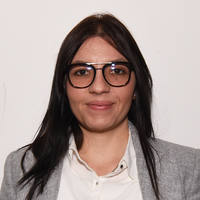
Dr Andrea J. Manrique-Rincón
Staff Scientist
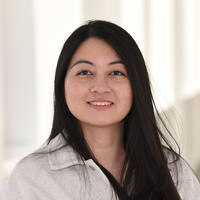
Dr Larissa Satiko Alcantara Sekimoto Matsuyama
Postdoctoral Fellow
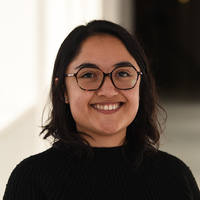
Rebeca Olvera León
PhD Student
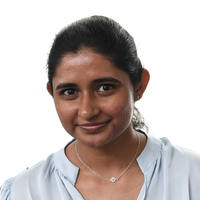
Shevaniee Umamaheswaran
Advanced Research Assistant
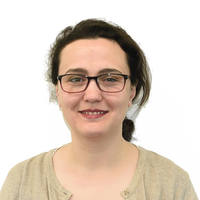
Dr Sunay Usluer
Janet Thornton Postdoctoral Fellow
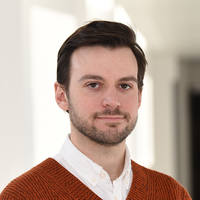
Dr Andrew Waters
Staff Scientist
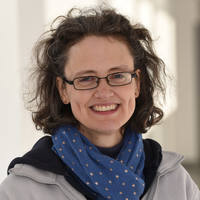
Louise van der Weyden
Senior Staff Scientist
Previous core team members

Dr Jenny Pui Ying Chan
Wellcome Trust Clinical PhD Fellow
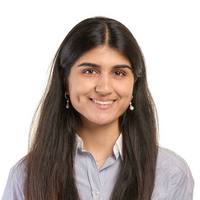
Saamin Cheema
Bioinformatician

Sofia Chen
PhD Student
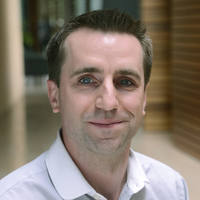
Dr James Hewinson
Laboratory Manager
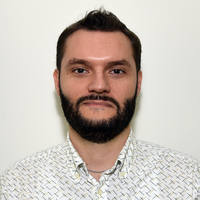
Dr Fabio Liberante
Work Stream Manager - GA4GH
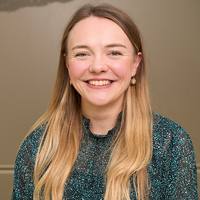
Sofia Obolenski
PhD Student
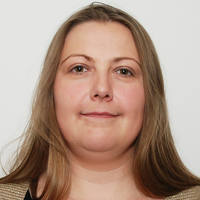
Dr Victoria Offord
Principal Bioinformatician
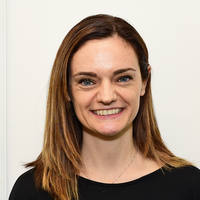
Dr Laura Riva
Principal Bioinformatician
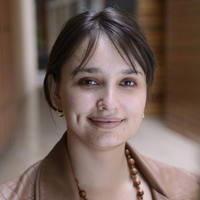
Dr Daniela Robles Espinoza
Visiting Scientist
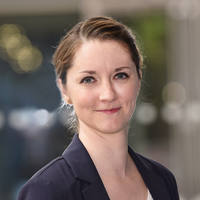
Dr Saskia Rudat
Postdoctoral Fellow
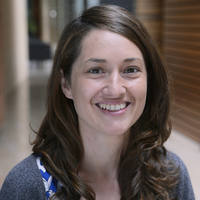
Marcela Sjöberg
Postdoctoral Fellow
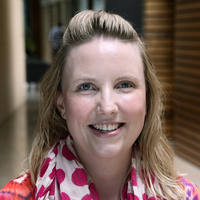
Dr Anneliese Speak
Senior Scientific Manager
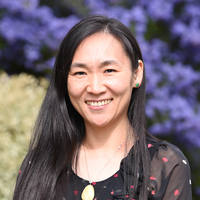
Dr Dijue Sun
Janet Thornton Fellow

Miss Gemma Turner
PhD Student
The following were also members of this team:
| Ian Sudbery (Postdoc) | Lecturer (Bioinformatics), Univ. of Sheffield, Sheffield, UK. |
| Daniela Robles (PhD student) | Group Leader, UNAM Human Genetics, Queretaro, Mexico. |
| Thomas Keane (Postdoc) | Group Leader, EBI-EMBL, UK & Prof at Univ. of Nottingham, UK. |
| Jessamy Tiffen (Postdoc) | Group Leader, Centenary Institute, Sydney, Australia. |
| Catherine Wilson (Postdoc) | Lecturer (Faculty), Cambridge University, Cambridge, UK. |
| Marcela Sjoberg (Postdoc) | Assistant Professor, University of Santiago, Chile. |
| Daniele Perna (Postdoc) | Senior Scientist, GSK, Stevenage, UK. |
| Nicola Thompson (PhD student) | Oncologist, Addenbrookes Hospital, Cambridge, UK. |
| Rebecca McIntyre (Postdoc) | Staff Scientist, Anderson Lab, Sanger Institute, Cambridge, UK. |
| Ania Migdalska (PhD student) | Lecturer, University of Exeter, Exeter, UK. |
| Jun Kong (PhD student) | Entrepreneur/Company CEO, London, UK. |
| Ruth Verstraten (RA) | Postdoc, Bowcocok Lab, Mt Sinai, NY, USA. |
| Jenny Mattison (PhD student) | Programmer, Cambridge, UK. |
| Robin van der Weide (M.Sc) | PhD Student at Utrecht, Utrecht, NL. |
| Radek Lach (PhD Student) | Postdoc at the Crick, Reddy Lab, London, UK. |
| Jorge Buendia (RA) | Programmer at the Broad Institute, Boston, USA. |
| Martin Del Castillo (PhD student) | Postdoc, Bejahti Lab, Sanger Institute, Cambridge, UK. |
| Sendu Bala (Computer Biol.) | Programmer, Sanger Institute, Cambridge, UK. |
| Marco Ranzani (Postdoc) | Senior Scientist, Artios Pharma, Cambridge, UK. |
| Ellie Dunstone (M.Sc student) | PhD student, CASM, Sanger Institute, Cambridge, UK. |
| Mamun Rashid (Computer Biologist) | Senior Data Scientist, Cambridge Epigenetics, Cambridge, UK |
| Vivek Iyer (Principal BioInformatician) | Head of Human Genetics Informatics, Sanger, Cambridge, UK. |
| Aravind Sankar (PhD student) | Postdoc, EBI, Keane Group, Cambridge, UK. |
| Bushra Abu-Helil (RA) | PhD student, Vet Medicine Group, UEA, Norwich, UK. |
| Agnes Swiatkowska (RA) | Research Assistant, CellGen, Sanger Institute, Cambridge, UK. |
| Richard Gunning (PhD student) | Programmer, Helsinki, Finland. |
| Carmen Ballesteros (RA) | Researcher at Abcam, Cambridge, UK. |
| Clara Alsinet (Postdoc) | Postdoc, Gaffney Lab, Sanger Institute, Cambridge, UK. |
| Marieke Herzog (PhD student) | Management Consultant, McKinsey & Company, London, UK. |
| Stefan Dentro (PhD student) | Postdoc, Gerstung Group, EBI, Cambridge, UK. |
| Alistair Rust (Principal Bioinformatician) | Senior Data Scientist, GSK, Stevenage, UK. |
| Theodore Whipp (Lab Manager) | Lab Manager, Cellular Genetics, Sanger Institute, Cambridge, UK. |
| Geoff Wood (Visiting Scientist) | Prof. and Co-Director, Institute for Comparative Cancer Investigation, Guelph, Canada. |
| David Wood (Visiting Scientist) | Prof. of Surgery, University of Western Australia, Perth, Australia. |
| Liezel Tamon (Visiting Scientist) | PhD student, University of Oxford, UK. |
| Katharina Strege (PhD student) | Postdoc, Griffiths Lab, Cambridge Univ, Cambridge, UK. |
| Damla Durmaz (Visiting Scientist) | Clinical Geneticist, Turkey. |
| Emanuelle Supper (Postdoc) | Product Specialist, Illumina, Cambridge, UK. |
| Natasha Karp (Statistician) | Senior Statistician, Astra Zeneca, Cambridge, UK. |
| Erini Christodoulou (Visiting scientist) | PhD student, van Dooren Lab, University of Leiden, Leiden, NL |
| Sonia Leonardelli (Visiting scientist) | PhD student, Melanoma Unit, University of Essen, Essen, Germany. |
| Gemma Turner (PhD student) | Medical writer, Glasgow, Scotland. |
Related groups
Programmes and Facilities
Partners
Our group works closely with a number of other institutions and programmes. Below you can find a list of these:
External
The Melanoma Genetics Consortium (GenoMEL)
We are one of the analysis groups within GenoMEL. We study the genome sequences of dozens of melanoma-prone families to search for genetic causes of their disease.
External
The Infection, Immunity and Immunophenotyping (3i) consortium
Collaborating with 3i, we generate and immunophenotype hundreds of mouse cell lines.
External
Deciphering the Mechanisms of Developmental Disorders (DMDD) Consortium
As part of DMDD, we study the effects of embryonic lethal mutations in mice to assign biological functions to genes.
External
The International Mouse Phenotyping Consortium
With IMPC, we study the phenotypes of mouse knockouts in order to discover gene function.
External
European Commission Marie Curie Actions
Our lab is part of a wide European Training Network (ETN), MELGEN-ETN.

International womens day!

Lab dinner

Nicky (former PhD student) and Marco (former postdoc) get married!

Lab dinner 2018

Aravind and Dave need to coordinate.

Prof. Thomas Keane (mouse genomes project) - former postdoc.

Dave wins the Goudie Medal.

CRISPR team.

Immunology team.

Martin is a Ninja.

Dinner at the Genomel meeting in Italy.

Stefan gives his EACR lecture.

Roy and Dave

Team Lunch August 2024

